|
|
|
|
|
|
|
|
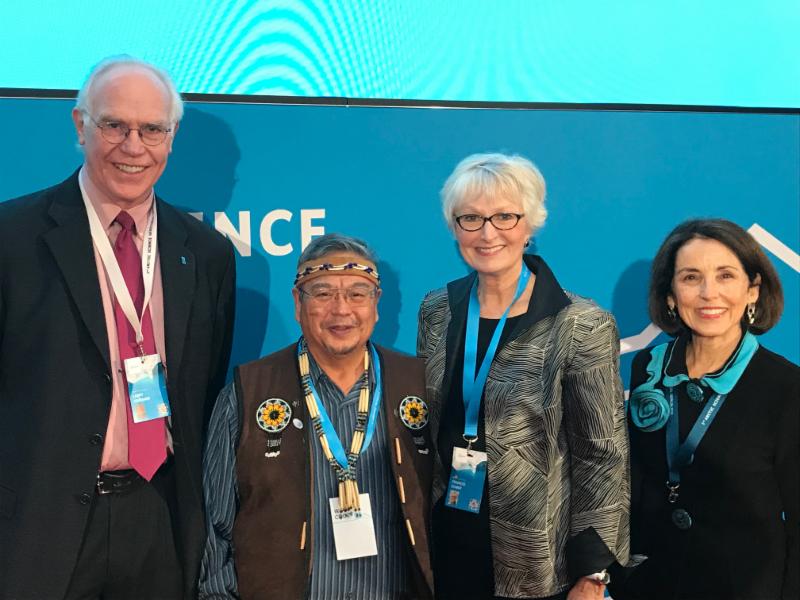 Arctic Science Ministerial, October 25-26 (Berlin, Germany). On 25 and 26 October, science ministers, researchers and representatives of international organizations and Arctic Indigenous peoples will come together in Berlin to discuss the future course of Arctic research. A Science Forum took place on the first day of the conference. A Ministerial Meeting will take place on October 26 with the aim of producing a Joint Statement on international collaboration in the Arctic. The interim report of the Second Arctic Science Ministerial (ASM2) is now available for download at the ASM2 website. Please click here to download. Arctic Science Ministerial, October 25-26 (Berlin, Germany). On 25 and 26 October, science ministers, researchers and representatives of international organizations and Arctic Indigenous peoples will come together in Berlin to discuss the future course of Arctic research. A Science Forum took place on the first day of the conference. A Ministerial Meeting will take place on October 26 with the aim of producing a Joint Statement on international collaboration in the Arctic. The interim report of the Second Arctic Science Ministerial (ASM2) is now available for download at the ASM2 website. Please click here to download.
|
Media
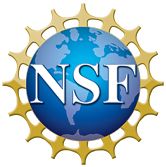 Navigating the New Arctic (NNA). Navigating the New Arctic (NNA). The National Science Foundation announced funding for NNA grants. In 2016, the National Science Foundation (NSF) unveiled a set of "Big Ideas," 10 bold, long-term research and process ideas that identify areas for future investment at the frontiers of science and engineering. The Big Ideas represent unique opportunities to position our Nation at the cutting edge of global science and engineering leadership by bringing together diverse disciplinary perspectives to support convergence research. As such, when responding to this solicitation, even though proposals must be submitted to the Directorate for Geosciences, once received, the proposals will be managed by a cross-disciplinary team of NSF Program Directors...This solicitation requests proposals that fall within two tracks. Track 1 supports research activities, while Track 2 is dedicated to planning grants to develop convergence research teams to tackle projects of larger scope in the future. National Science Foundation
NATO Back on the Hunt for Russian Submarines in the Arctic. In a far-flung corner of Iceland's main international airport, a once-raging strand of the Cold War is being rekindled -- NATO's hunting of Russian submarines. "They're letting us know that they're out there," Adm. James G. Foggo III, commander of US Naval Forces in Europe, said of Russia's increased submarine presence in the North Atlantic and Arctic oceans. "They're operating in much greater numbers and in places they have not operated before." CNN
DFO, Canadian Coast Guard Create New Arctic Region. In a move to put Inuit and Indigenous peoples in the North at the heart of decision-making, the Department of Fisheries and Oceans and the Canadian Coast Guard have announced the creation of a new region focused specifically on the Arctic. Federal Minister of Fisheries, Oceans and the Canadian Coast Jonathan Wilkinson made the announcement in Iqaluit on Tuesday. CBC News
Will Alaska's New Governor Keep Walker's Climate Team? Lately, Kristen Lyda Rees has had her nose in a book about how huge catastrophes and natural disasters affect cultural change. Rees is an anthropology major at the University of Alaska Southeast. And today, she's leading a group discussion on Alaska's Climate Change Action Plan. As a giant bowl of Halloween candy gets passed around, the conversation shifts between anxieties over the future to questions about whether the action plan is enough to initiate change. Alaska Public Radio 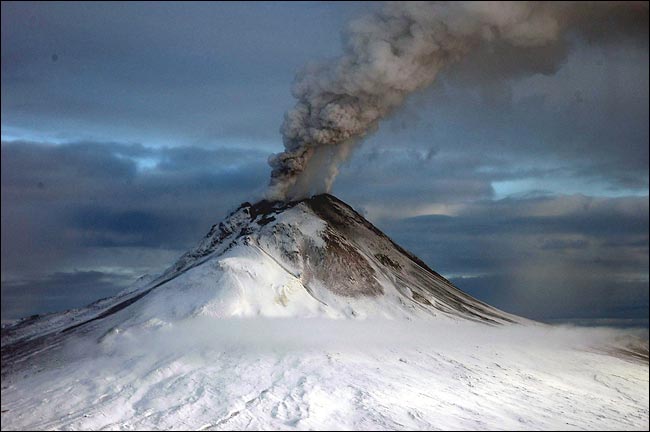 New Report Ranks Five Alaska Volcanoes as 'Very High Threat.' New Report Ranks Five Alaska Volcanoes as 'Very High Threat.' Government scientists have classified 18 U.S. volcanoes, including five in Alaska, as a "very high threat" because of what's been happening inside them and how close they are to people. The U.S. Geological Survey has updated its volcano threat assessments for the first time since 2005. The danger list is topped by Hawaii's Kilauea, which has been erupting this year. The others in the top five are Mount St. Helens and Mount Rainier in Washington, Alaska's Redoubt Volcano and California's Mount Shasta. KTOO
|
|
Future Events
aim of this Government of Canada and the Government of Newfoundland and Labrador supported international conference is to promote stakeholder collaboration, technological innovation, harsh environment research & development, and world-class education efforts that are contributing to both Maritime and Arctic issues. This two day conference will draw a diverse group of speakers and attendees representing government, military, Canadian and U.S. Coast Guard, industry, academic leaders, Northern Leaders, research and other key stakeholders. We hope you can join us to be a part of this important dialogue
American Geophysical Union Fall meeting, December 10-14, 2018 (Washington, DC USA). The AGU 2018 Fall Meeting will mark another dynamic year of discovery in Earth and space science, serve as the advent of AGU's Centennial year, and provide a special opportunity to share our science with world  leaders in Washington, D.C. As the largest Earth and space science gathering in the world, the Fall Meeting places you in the center of a global community of scientists drawn from myriad fields of study whose work protects the health and welfare of people worldwide, spurs innovation, and informs decisions that are critical to the sustainability of the Earth.
ArcticNet: Annual Scientific Meeting 2018, December 10-14, 2018 (Ottawa, ON Canada). Canada's North is experiencing unprecedented change in its sea and terrestrial ice, permafrost and ecosystems under the triple pressures of climate change, industrialization and modernization. The impacts of these pressures can be seen on food and energy security, shipping, sovereignty, northern community health and well-being, and sustainable development and resource exploitation. All these issues have brought the North to the forefront of national and international agendas. Building on the success of its previous Annual Scientific Meetings and International Arctic Change Conferences, the Arctic Network of Centers of Excellence announces the 14th ArcticNet Annual Scientific Meeting.
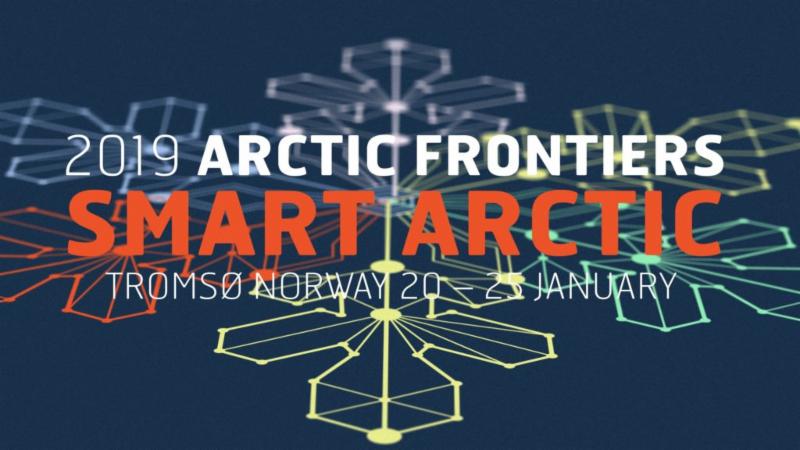 Arctic Frontiers, January 20-25, 2019 (Tromso, Norway). The Arctic Frontiers is a global scientific conference on economic, societal, and environmental sustainable growth. This year's theme will be "Smart Arctic," with a pan-arctic emphasis, and an effort to build new partnerships across nations, generations and ethnic groups. Arctic Frontiers provides a forum for dialogue and communication between science, government and industry. The plenary program will have five main sessions: State of the Arctic, Blue Growth, Smart Solutions, Bridging the Gap, and Arctic business prospects. An abstract-driven science program will address Plastics in the Ocean, the Future of Governance and Handling Vulnerability in Arctic Ecosystems, State of the Arctic and A Smart Arctic Future.
 of the AAG includes over 8,500 geographers converging from the U.S., Canada, and nearly 60 other countries in a typical year including geographers, GIS specialists, environmental scientists, and other leaders for the latest in research and applications in geography, sustainability, and GIScience. of the AAG includes over 8,500 geographers converging from the U.S., Canada, and nearly 60 other countries in a typical year including geographers, GIS specialists, environmental scientists, and other leaders for the latest in research and applications in geography, sustainability, and GIScience.
|
|

  
4350 N. Fairfax Drive, Suite 510
Arlington, VA 22203, USA
External links in this publication, and on the USARC's World Wide Web site ( www.arctic.gov) do not constitute endorsement by the US Arctic Research Commission of external Web sites or the information, products or services contained therein. For other than authorized activities, the USARC does not exercise any editorial control over the information you may find at these locations. These links are provided consistent with the stated purpose of this newsletter and the USARC Web site.
|
|
|
|
|
|
|
|
|
 Navigating the New Arctic (NNA). The National Science Foundation announced funding for NNA grants. In 2016, the National Science Foundation (NSF) unveiled a set of "Big Ideas," 10 bold, long-term research and process ideas that identify areas for future investment at the frontiers of science and engineering. The Big Ideas represent unique opportunities to position our Nation at the cutting edge of global science and engineering leadership by bringing together diverse disciplinary perspectives to support convergence research. As such, when responding to this solicitation, even though proposals must be submitted to the Directorate for Geosciences, once received, the proposals will be managed by a cross-disciplinary team of NSF Program Directors...This solicitation requests proposals that fall within two tracks. Track 1 supports research activities, while Track 2 is dedicated to planning grants to develop convergence research teams to tackle projects of larger scope in the future. National Science Foundation
Navigating the New Arctic (NNA). The National Science Foundation announced funding for NNA grants. In 2016, the National Science Foundation (NSF) unveiled a set of "Big Ideas," 10 bold, long-term research and process ideas that identify areas for future investment at the frontiers of science and engineering. The Big Ideas represent unique opportunities to position our Nation at the cutting edge of global science and engineering leadership by bringing together diverse disciplinary perspectives to support convergence research. As such, when responding to this solicitation, even though proposals must be submitted to the Directorate for Geosciences, once received, the proposals will be managed by a cross-disciplinary team of NSF Program Directors...This solicitation requests proposals that fall within two tracks. Track 1 supports research activities, while Track 2 is dedicated to planning grants to develop convergence research teams to tackle projects of larger scope in the future. National Science Foundation New Report Ranks Five Alaska Volcanoes as 'Very High Threat.' Government scientists have classified 18 U.S. volcanoes, including five in Alaska, as a "very high threat" because of what's been happening inside them and how close they are to people. The U.S. Geological Survey has updated its volcano threat assessments for the first time since 2005. The danger list is topped by Hawaii's Kilauea, which has been erupting this year. The others in the top five are Mount St. Helens and Mount Rainier in Washington, Alaska's Redoubt Volcano and California's Mount Shasta. KTOO
New Report Ranks Five Alaska Volcanoes as 'Very High Threat.' Government scientists have classified 18 U.S. volcanoes, including five in Alaska, as a "very high threat" because of what's been happening inside them and how close they are to people. The U.S. Geological Survey has updated its volcano threat assessments for the first time since 2005. The danger list is topped by Hawaii's Kilauea, which has been erupting this year. The others in the top five are Mount St. Helens and Mount Rainier in Washington, Alaska's Redoubt Volcano and California's Mount Shasta. KTOO

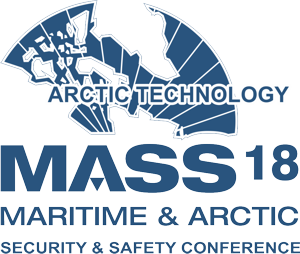 must-attend event to gain a wide perspective on challenges, opportunities and policies related to the Arctic and North Atlantic maritime environments. The
must-attend event to gain a wide perspective on challenges, opportunities and policies related to the Arctic and North Atlantic maritime environments. The 
